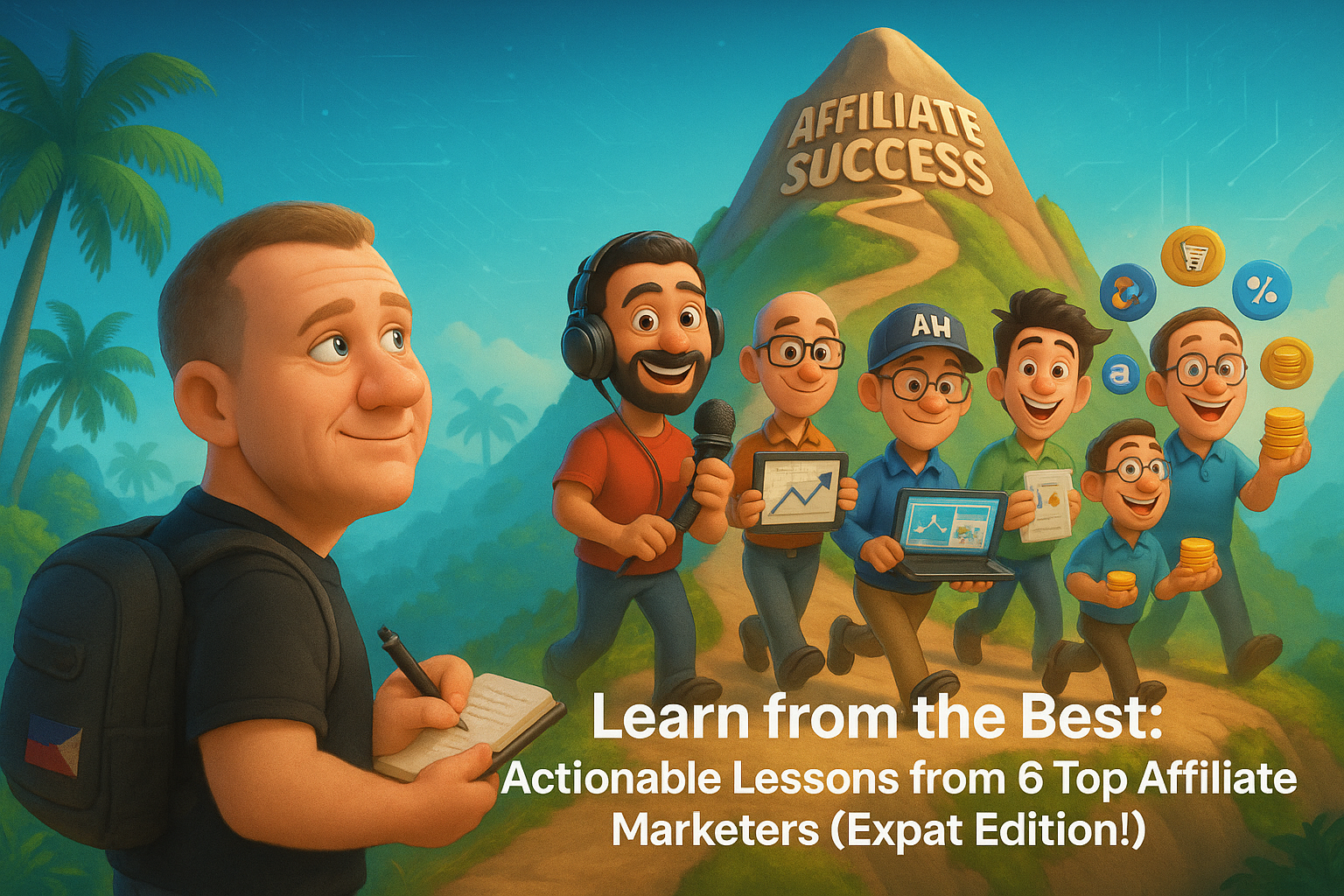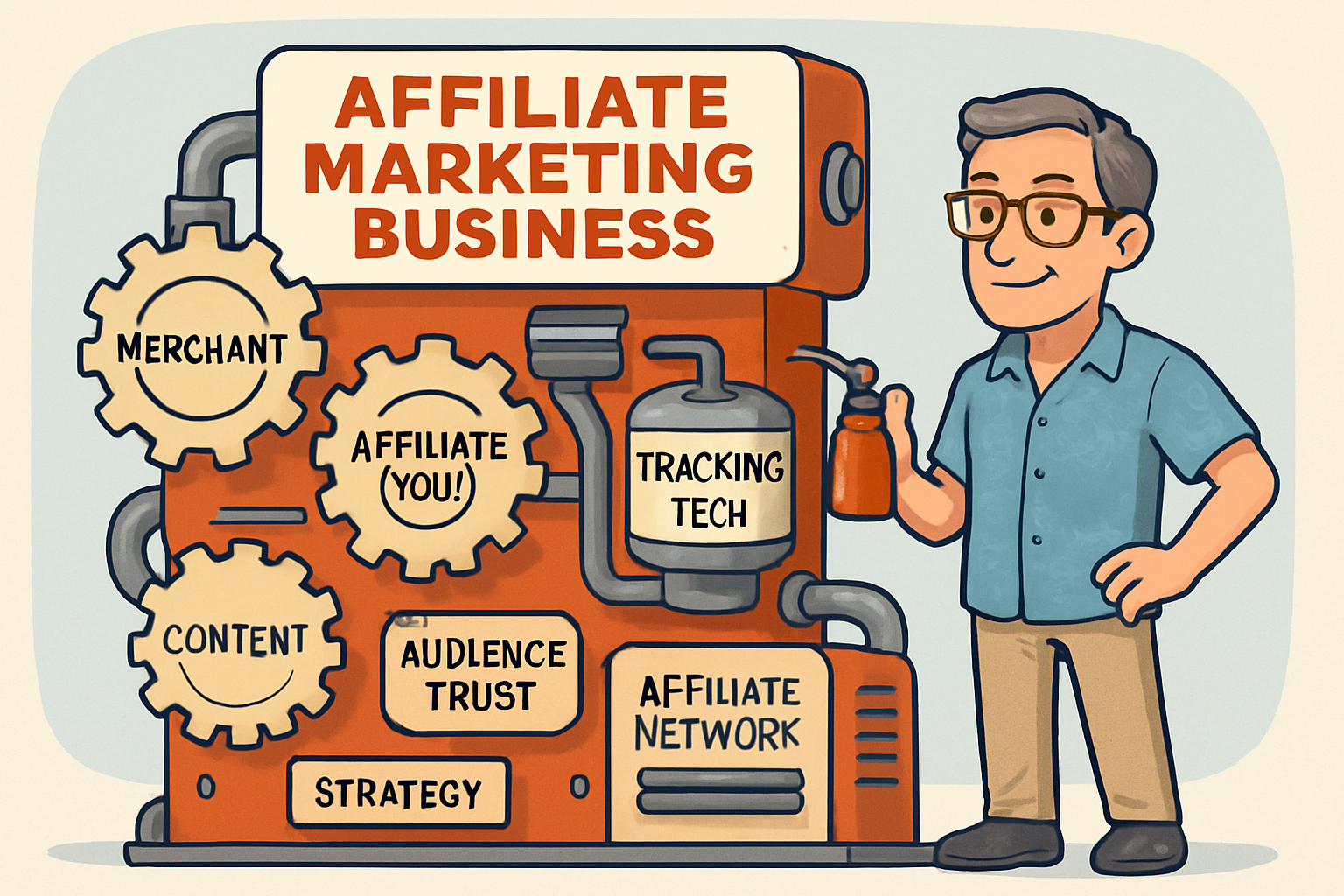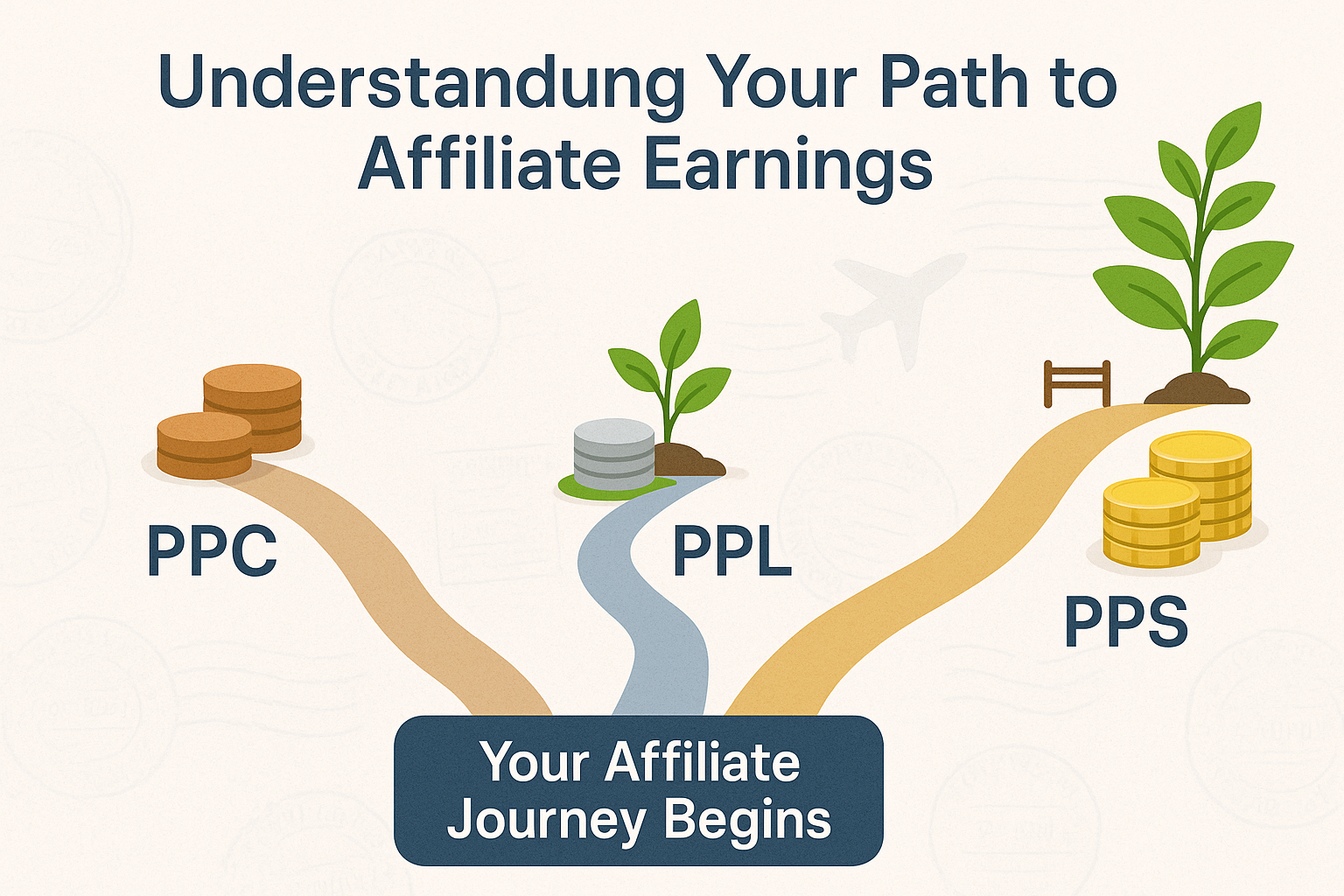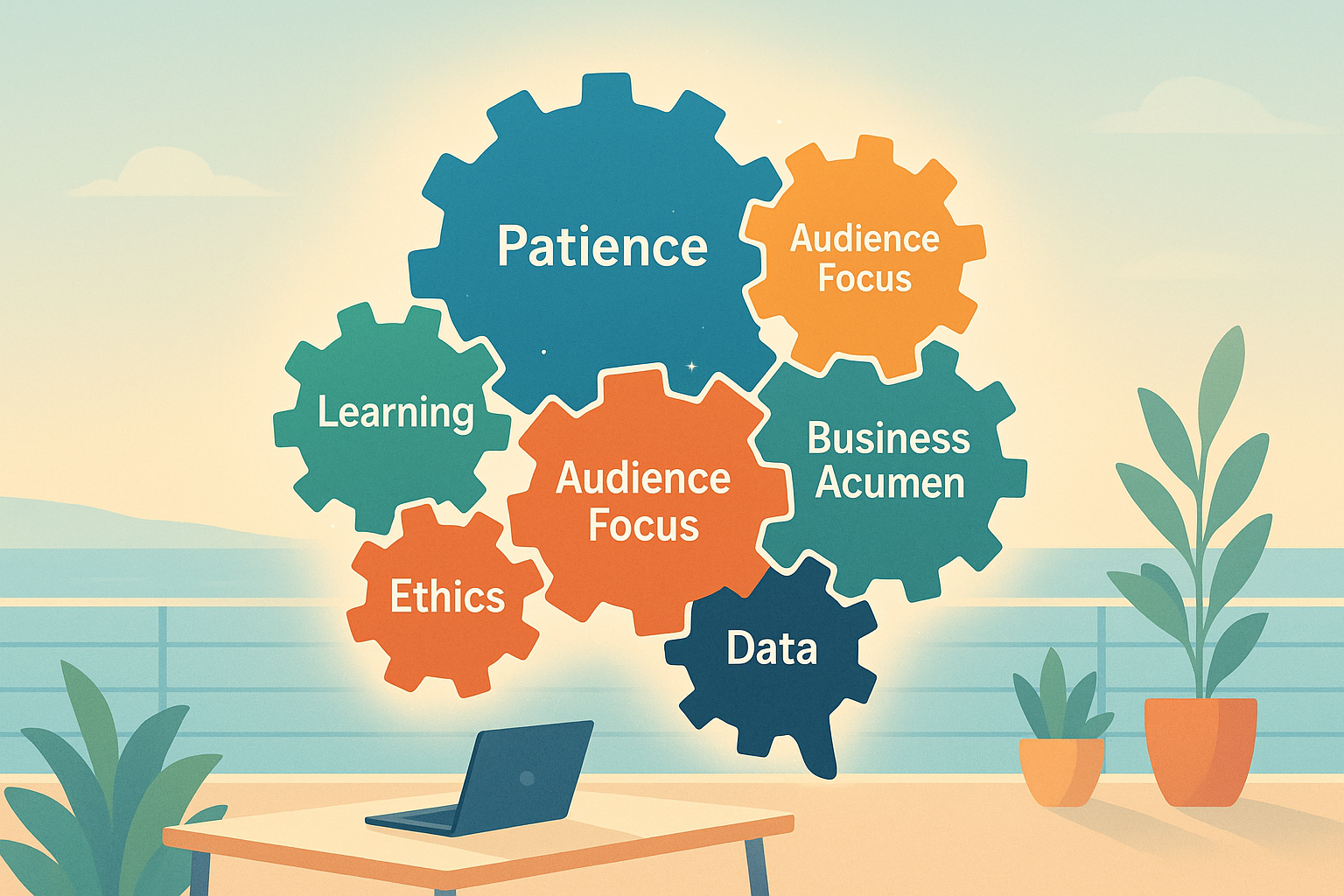Hey everyone, Daniel Sokoll here. If you’re navigating the world of online income, especially as an expat like me living here in the Philippines, you know finding sustainable strategies is key. Affiliate marketing has been a game-changer for me, but let’s be real – it only works long-term if people actually trust you. That’s why building trust in affiliate marketing isn’t just a nice-to-have; it’s the absolute foundation for increasing your sales ethically and creating a business that lasts. This post dives deep into how you can cultivate that crucial trust, transforming clicks into conversions and one-time buyers into loyal advocates.
Like many of you, my journey to finding a reliable online income wasn’t a straight line. After moving abroad in 2004, I needed something dependable. I explored freelancing and even drop-shipping, but affiliate marketing truly stood out. It wasn’t always easy – creating content and pushing past my comfort zone were major hurdles. But seeing the potential, especially after learning from mentors like Jonathan Montoya, kept me going. Now, my mission is to help you see that potential too, particularly how building trust can turn your side hustle into something truly substantial. Many people I talk to are looking for flexible income, want to develop new skills, but are maybe hesitant due to low start-up costs – affiliate marketing, done right, checks all those boxes. But it starts with trust.
Why Trust is Non-Negotiable in Affiliate Marketing
Affiliate marketing is built on recommendations. When you promote a product, you’re essentially telling your audience, “Hey, I think this can help you.” If they don’t trust your judgment or your intentions, that recommendation falls flat. In today’s digital world, people are savvy. They can spot overly salesy or inauthentic promotions a mile away. Misleading tactics might bring a quick buck, but they destroy credibility in the long run.
Think about it – you’re likely juggling a side hustle with a job, family, or other commitments. Your time is precious, and so is your audience’s. They face challenges like inconsistent income from other ventures (maybe frustrating survey sites or hyper-competitive freelance platforms) and are wary of scams. Building trust means showing them you respect their time, their intelligence, and their wallet. It’s about playing the long game, focusing on relationships over quick commissions.
The Power of Openness: Transparency and Disclosure
The absolute bedrock of building trust in affiliate marketing is transparency. You must be upfront about your affiliate relationships.
Why Disclosure Isn’t Just Optional, It’s Essential
Firstly, it’s often a legal requirement. Bodies like the Federal Trade Commission (FTC) have clear guidelines mandating disclosure. Ignoring these can lead to serious trouble. But beyond legality, it’s about honesty. When you’re open about potentially earning a commission, you treat your audience with respect. Hiding it suggests you have something to hide, immediately creating suspicion.
Best Practices for Clear Affiliate Disclosure
Making your disclosures effective is key. Here’s how:
- Clear and Simple Language: Avoid jargon. Something like, “This post contains affiliate links. If you purchase through these links, I may earn a commission at no extra cost to you,” works well.
- Prominent Placement: Don’t bury it in the footer. Place it near the top of the content or close to the affiliate links themselves, so it’s seen before someone clicks.
- Consistency is Key: Disclose on every piece of content with affiliate links. Use the same clear approach across your blog, social media, videos, etc.
- Format Matters: Use hashtags like #ad or #sponsored on social media, or verbal disclosures in videos.
- Educate Your Audience: Briefly explain what affiliate marketing is and why you use it (e.g., “These links help support the free content I provide”). This builds understanding and reinforces trust.
| Practice | Description |
|---|---|
| Clear Language | Use simple and straightforward language that is easy for all readers to understand. |
| Prominent Placement | Make the disclosure easily visible, ideally at the top of the content or near affiliate links. |
| Frequency | Include disclosures on every page or piece of content featuring affiliate links or sponsorships. |
| Visibility | Ensure the disclosure is noticeable and not obscured by other elements on the page. |
| Consistency | Maintain a consistent disclosure practice across all platforms used for affiliate marketing. |
| Format-Specific Methods | Utilize disclosure methods appropriate for different content formats (text, video, social media). |
| Audience Education | Explain what affiliate marketing is and how it affects the content to build trust. |
When you’re transparent, you empower your audience to make informed decisions. It feels less like a transaction and more like a partnership.
Beyond the Sale: Create Content That Genuinely Helps
People don’t come to your blog just to buy things. They come looking for solutions, answers, and value. Building trust in affiliate marketing heavily relies on providing content that serves your audience first and promotes products second.
Types of High-Value Affiliate Content
Think about the pain points of your audience: they lack time, feel overwhelmed by the learning curve of online business, and desire financial independence. Your content should address these directly.
- Honest Product Reviews: Go beyond the sales page. Detail pros and cons. Share your genuine experience. If you haven’t used it, say so, or explain why you still recommend it based on solid research. This objectivity builds immense trust.
- How-To Guides & Tutorials: Show people how to use a product to solve a specific problem. If you recommend email marketing software, create a tutorial on setting up the first campaign. This positions you as a helpful expert.
- Comparison Guides: Help your audience choose between different options. Compare features, pricing, and suitability for different needs (e.g., comparing beginner-friendly tools vs. advanced ones).
- Resource Pages: Compile lists of tools and services you personally use and trust. This becomes a go-to resource for your audience.
- Case Studies & Personal Stories: Share your own results or experiences (good and bad!). Authenticity connects. My own journey involved struggling with consistency before finding systems that worked – sharing that makes the advice more relatable.
- Problem/Solution Content: Identify a common audience problem (like “How do I find time for my side hustle?”) and offer solutions, potentially weaving in an affiliate product naturally where it fits.

H3: Balancing Promotion and Value
The key is integration, not interruption. The product should feel like a natural part of the solution you’re offering, not bolted on. Understand the buyer’s journey:
- Top of Funnel (TOFU): Awareness stage. Content might be broader, addressing problems without heavy product focus.
- Middle of Funnel (MOFU): Consideration stage. Comparisons, detailed reviews, case studies work well here.
- Bottom of Funnel (BOFU): Decision stage. Tutorials, specific use cases, special offers can help convert.
Remember SEO too! Optimize your valuable content so people searching for solutions can find you. When your content genuinely helps, people are far more likely to trust your recommendations when you make them. Purely promotional content feels spammy and erodes trust quickly.
Find Your Voice: Authenticity Connects
People connect with people, not faceless brands. Developing an authentic brand voice is crucial for building trust in affiliate marketing. It makes you relatable and helps you stand out.
Defining Your Brand Voice
- Know Your Why: What’s your mission? Your values?. My mission is to empower people to monetize their online presence because I know the freedom it can bring. That shapes my voice.
- Know Your Who: Understand your target audience deeply – their needs, aspirations, language. Are they beginners needing encouragement? Experienced marketers looking for advanced tactics? Tailor your tone.
- Be Consistent: Use the same voice across your blog, emails, social media. A brand style guide can help.
- Inject Your Personality: Don’t be afraid to be yourself. Share relevant personal anecdotes. My background is in business and sales in Germany, then adapting to life and online work in the Philippines – these experiences add a unique flavor. Share your challenges and wins; it builds relatability.
Storytelling: The Ultimate Connector
Share your journey. Why did you start? What hurdles did you face? What turning points occurred?. For me, the struggle after my initial affiliate model stopped working in 2010, the years feeling stuck, and then refocusing and finding new strategies (like partnering with Jonathan Montoya) are part of my story. Sharing these vulnerabilities makes the connection deeper.
An authentic voice builds emotional connections and loyalty. People trust recommendations from those they feel they know.
Recommend What Matters: Relevance and Quality First
This seems obvious, but it’s critical: only promote products and services that are genuinely relevant and beneficial to your audience. Your recommendations directly impact your credibility.
Choosing the Right Products
- Know the Product: Deeply understand what you’re promoting. How does it work? Who is it truly for? What are its limitations?
- Test Personally (If Possible): There’s no substitute for first-hand experience. It allows you to speak authentically about quality and effectiveness. Does it align with your values?.
- Prioritize Quality & Relevance Over Commission: High commissions are tempting, but promoting a shoddy or irrelevant product will destroy trust. Focus on brand reputation and genuine audience fit.
- Stick to Your Niche: Focusing on a specific area (like online income for expats, or beginner affiliate strategies) makes your recommendations more targeted and builds your authority. You become the go-to expert.
When you recommend products that genuinely help solve your audience’s problems (like finding flexible income or learning new digital skills), you shift from being a salesperson to a trusted advisor. This builds long-term loyalty. Taking the time to carefully vet products shows you prioritize your audience’s well-being over a quick commission.
Navigate the Ethical Landscape: Be Responsible
Building trust in affiliate marketing requires a strong ethical compass. Honesty and integrity should guide every decision.
Key Ethical Considerations
- Compliance is Non-Negotiable: Adhere strictly to FTC guidelines and data privacy laws like GDPR/CCPA. Understand your legal obligations.
- Promote Genuinely: Only recommend products you believe in and have vetted. Authenticity matters.
- Avoid Deception: Never make misleading claims, exaggerate benefits, or use shady tactics. Be honest and accurate.
- Respect User Privacy: Handle any collected data responsibly and securely. Be transparent about data usage.
- Transparency About Compensation: Be open about how you earn money. Your disclosure takes care of this, reinforcing your integrity.
Ethical marketing builds a sustainable ecosystem based on trust. It enhances your reputation and contributes positively to the industry. Unethical behavior, conversely, leads to lost credibility, legal issues, and damages the perception of affiliate marketing for everyone.
(Image Placeholder)
- Description: A balanced scale with “Ethics” on one side and “Profit” on the other, perfectly balanced.
- Caption: Ethical practices are the foundation of sustainable affiliate success.
- Alt Text: Balancing ethics and profit in affiliate marketing.
Optimize the Experience: Make it Easy and Enjoyable
How users interact with your website or platform significantly impacts trust. A clunky, slow, or confusing experience erodes confidence.
Elements of a Trust-Building User Experience (UX)
- Intuitive Navigation: Can users easily find what they need?. Clear menus and site structure are vital.
- Fast Loading Speed: Slow sites frustrate users and lead to high bounce rates. Optimize images and use good hosting. Speed impacts conversions.
- Mobile Responsiveness: Your site must work flawlessly on all devices (desktops, tablets, phones). Many users browse primarily on mobile.
- Clear Calls to Action (CTAs): Guide users clearly on what to do next (e.g., “Learn More,” “Check Price,” “Get Started”).
- Clean Design & Quality Visuals: An uncluttered, professional-looking site inspires confidence.
- Valuable Content: As discussed, this is core to good UX.
- Website Security: Use HTTPS. Assure users their connection is secure, especially if handling any data.
- Listen to Feedback: Actively gather and respond to user feedback to continuously improve the experience.
A smooth, fast, and user-friendly experience makes visitors feel respected and valued. It builds subconscious trust and makes them more receptive to your recommendations. Investing in good UX is investing in trust. (Suggestion: Link to relevant articles on website building or UX if available on danielsokoll.com: [Internal Link: How to Build a User-Friendly Website for Your Online Business]).
Play the Long Game: Nurture Audience Relationships
The most successful affiliate marketers focus on building relationships, not just making sales. A loyal audience means higher engagement, repeat business, and greater lifetime value (LTV).
Strategies for Relationship Building
- Engage Authentically: Respond to comments, participate in discussions, be present on social media. Show you’re listening.
- Provide Consistent Value: Keep delivering helpful content, tips, and maybe exclusive insights or deals for your audience.
- Build an Email List: This is crucial! It gives you a direct line to communicate with your most engaged audience members, nurture leads, and build deeper connections. (Suggestion: Link to lead magnet or email list sign-up:
[Internal Link: Join My Newsletter for Exclusive Tips]). - Foster Community: Create a space (like a Facebook group or forum) where your audience can connect with you and each other.
- Personalize: Tailor content and offers based on audience segments or interests where possible.
- Seek & Act on Feedback: Show you value their opinions.
- Consider Loyalty Perks: Offer incentives for repeat engagement or purchases.
This relationship marketing approach turns followers into fans and advocates. They’ll buy based on your recommendations and share your content, expanding your reach organically.
Conclusion: Trust is Your Most Valuable Affiliate Asset
Building trust in affiliate marketing isn’t a shortcut; it’s the sustainable path to long-term success. It requires a conscious effort across every aspect of your business:
- Transparency: Openly disclose your relationships.
- Value: Create content that genuinely helps.
- Authenticity: Develop a relatable brand voice.
- Relevance: Promote products that truly fit your audience.
- Ethics: Uphold integrity in all practices.
- User Experience: Ensure a smooth, positive interaction.
- Relationships: Nurture your audience for the long haul.
These pillars work together to establish you as a credible, reliable resource. In a world where consumers crave authenticity, prioritizing trust is how you win. It’s how I’ve aimed to build my own affiliate efforts after learning the hard way, and it’s how you can build a thriving online business that supports your goals – whether that’s achieving financial independence, enhancing your skills, or finding that coveted work-life balance.
What’s your biggest challenge when it comes to building trust with your audience? Share your thoughts in the comments below!
Disclaimer: This blog post contains affiliate links. If you purchase through these links, I may earn a commission at no extra cost to you. I only recommend products I believe in and that I think will provide value to my audience.














Leave a Reply